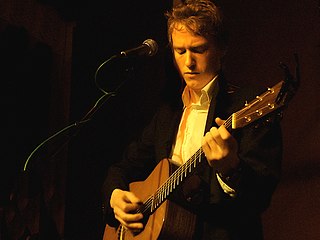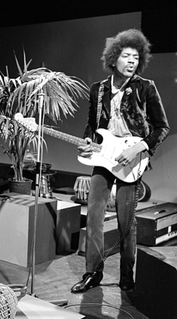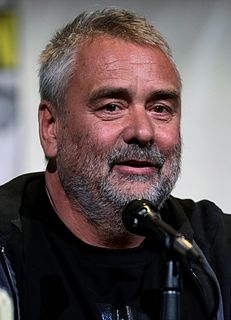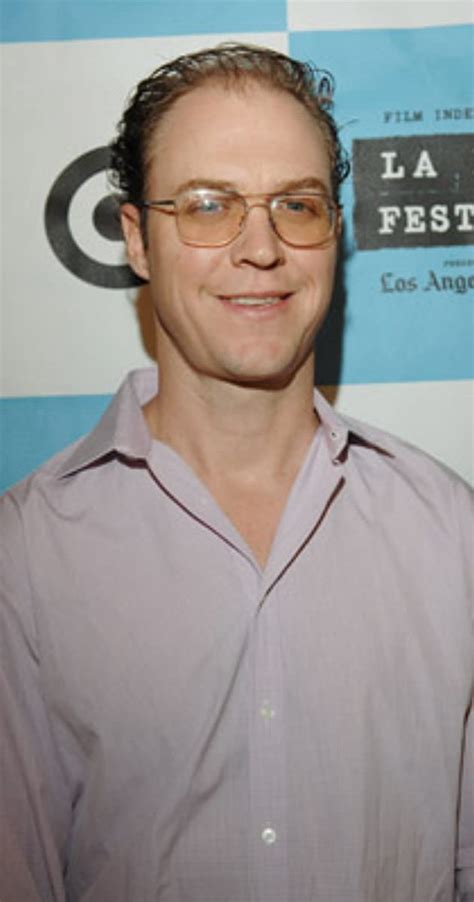A Quote by Todd Haynes
Once you are shooting a movie, even if it's your own script, you have to let it go at a certain point. That's true for every film. It breaks up into phases where the thing that you have in front of you is the thing you have to address, and you can't worry about what you imagined a scene was going to like and that it came out differently, because that's what you have to make work.
Related Quotes
I'm not entirely comfortable saying I'm an actor, because it seems like a very weird, almost dorky thing to say you are. I laugh after every take just out of the discomfort I feel that I'm even on film. It's an awkward thing for me to be doing. Once we get going, it's always fine, and as we're shooting, I'm never thinking about it. I'd say that all my time in front of the camera is equally uncomfortable for me.
That's the one thing you wake up with every day: How long have I got left? And that's the saddest thing in the world, because you have this absolute realization that everything you love you're going to have to let go of and give up. I look at my daughter and I think, There's going to be a point where I'm not going to be around for her. Even the thought of that breaks my heart.
I didn't even think about it when I read the script and then shooting their movie and someone was like "boy, press is going to be fun". And I didn't really know what they were talking about because to me it's just a film shows it as an extremely viable option which is obviously the most important thing for young individuals.
Like every novelist, I fantasise about film. Novelists are not equipped to make a movie, in my opinion. They make their own movie when they write: they're casting, they're dressing the scene, they're working out where the energy of the scene is coming from, and they're also relying tremendously on the creative imagination of the reader.
Whenever you take a subject you're obsessed with or that haunts you, and make a movie about it, you're converting it into work units that need to be completed. You gotta turn it into a treatment, a script, a grant application, a bunch of forms to be filled out, a shooting schedule, casting sessions, auditions, shooting, editing, music compositions, the film festival circuit, interviews even. And by the time you've finished the process you're so sick and tired by something that was once very precious to you that you're done with it.
Die Hard With A Vengeance shooting was a great time, because we had an interesting script. The first script was called Simon Says, and something was going on, because some days we'd get to work, but we wouldn't actually have dialogue. We would go to Bruce's Willis trailer, and they'd say, "Okay, you have to go from 168th Street to 97th Street today. We're going to do it in the cab, and Sam, you say this. Bruce, what do you want to say?" And that's how Bruce's "hey, Zeus!" thing came up.
It's what is strange about doing a job that is also the thing you love, the thing you feel passionate about. People get to the point where they're burned out and disillusioned by the whole thing because when things aren't going well at work it also means they aren't going well in your heart, in your soul. They're all wrapped up together.
.. I get more of a dreamy thing from the audience - it's more of a thing that you go up into. You get into such a pitch sometimes that you go up into another thing. You don't forget about the audience, but you forget about all the paranoia, that thing where you're saying, 'Oh gosh, I'm on stage - what am I going to do now ?' - Then you go into this other thing, and it turns out to be like almost like a play in certain ways
When you try to be true to the script, changes occur. A script is there to show us a certain direction. But when you actually have the actors in and you start shooting the movie, you have the actor say a line and it doesn't sound right so you change it and make it different. It's the script that gives birth to these changes and the more you try to stay true to the script, the more that happens.
People seem to think that my movies are so carefully coordinated and arranged - and in a lot of ways, they are - but every single time I make a movie, I feel that every director makes these choices. You make choices about your script, you make choices about your actors, and how you're going to stage it, and how you're going to shoot it, and what the costumes are going to be like, and in every single detail, you make that decision. And for me, what ends up happening is, I wind up surprised at the combination of all these ingredients. It never is anything like what I expected.
You never have any idea where your movie's going to go when you're shooting - you're in this little bubble. Everything you care about is getting the next step right: getting the script right, finding the right actors, shooting it. Then you spend half a year in a dark room editing your film, and you don't talk to anybody.
The most difficult thing about shooting guns instantly on film is to not pull a silly face while the gun is going off, because it's always a bit of a shock. So you find yourself sticking your tongue out or blinking or whatever. So the hardest thing is to keep a straight face while you're shooting a gun.
If there's a cutaway, you need to get it then because it's only going to last [a few moments]. You have to edit the movie as you're shooting it in your head and communicate with your crew about how it's going to work. While making a movie, you have the luxury of storyboards and a script and a bigger crew and actors. I mean, it's so much easier.





































